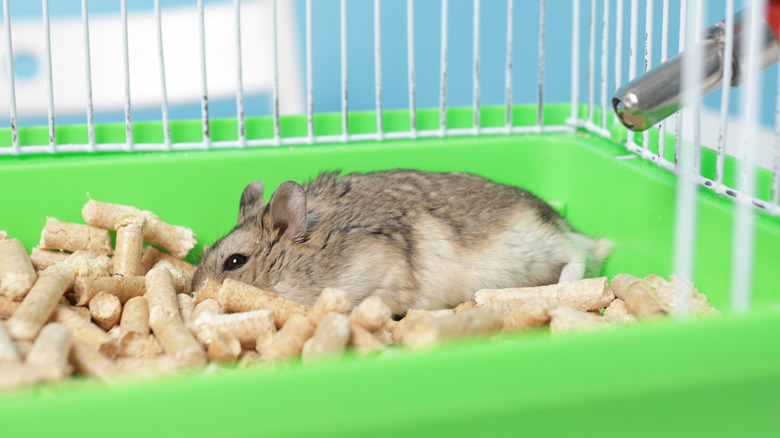Hamster Seizures: What To Know
Seizures commonly occur in humans for different reasons, but they can also affect animals, including hamsters. Certain hamster species are more prone to seizures than others, such as the Syrian hamster (per the Journal of Heredity). An Epilepsy & Behavior article published in 2017 stated that other hamsters have audiogenic seizures (AGS), which are triggered by sound and caused by a rare brain disease. Diabetes, a disease that commonly affects Chinese dwarf hamsters, can also lead to seizures.
Watching any animal or person have a seizure can be frightening, especially when it's your first time. A number of questions may surface in your mind: Is this even a seizure (or is the hamster having a stroke)? Is there anything I can do to try to stop it? What should I do after it's over? Did something cause it? Will it happen again? Should I be concerned? In general, if you have questions about your hamster's health, the first person you should contact is your veterinarian. However, there are symptoms you can look for and approaches you can take that may help in the case of a seizure.
How to tell if your hamster is having a seizure (and what to do)
Hamster seizures aren't common, and limited published material is available on the topic. However, the Journal of Heredity includes information about spontaneous seizures, specifically in Syrian golden hamsters. In this species, seizures might be characterized by "a reduction in normal activity as well as obvious clumsiness ... for the first few minutes" of being placed in a new cage. You may also notice the ears held closely against the head, abnormal walking, and subtle facial contortions. Whether you have a Syrian or any other type of hamster, additional seizure symptoms could include collapsing on the floor, losing consciousness, involuntary shaking, stiffening of limbs, or involuntary bowel movements.
If you witness signs of a seizure, do your best to remain calm and make sure your hamster is safe until the episode ends. Remove any nearby items that may harm them, or use your hand to gently contain them to a certain area. Some animal seizures can last for a minute or two, but for Syrian hamsters, they can last up to five hours. Call your veterinarian to ask for guidance and to determine if emergency care is necessary. Even if the seizure seems mild and ends quickly, you may still want to schedule a visit with your vet to discuss treatment or preventive measures, such as alterations to your hamster's diet.

